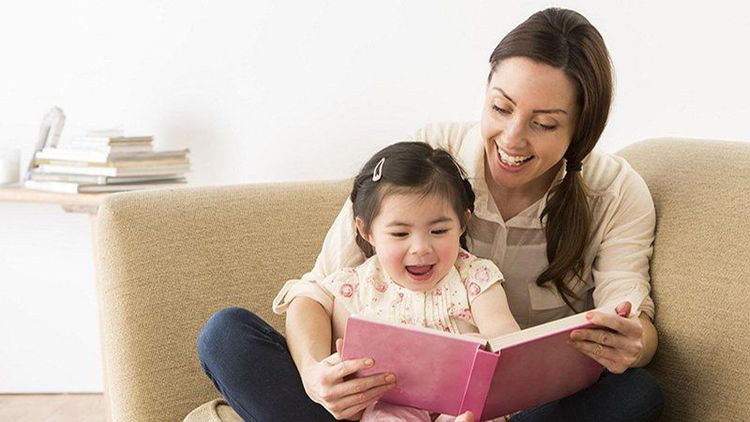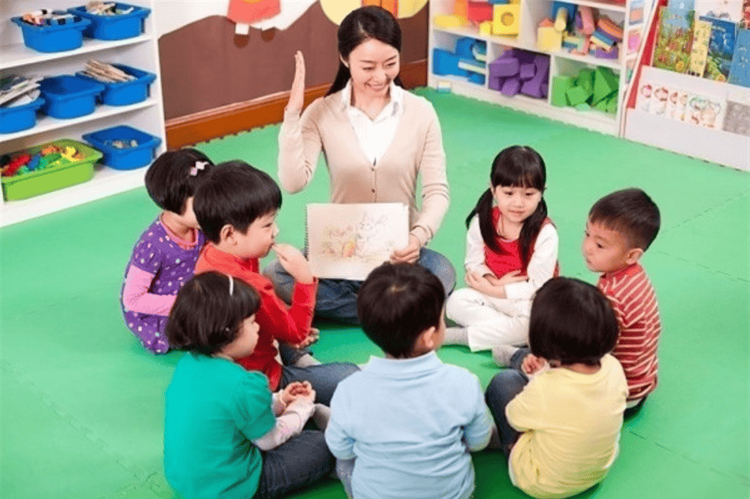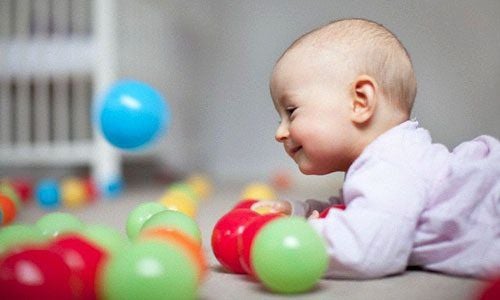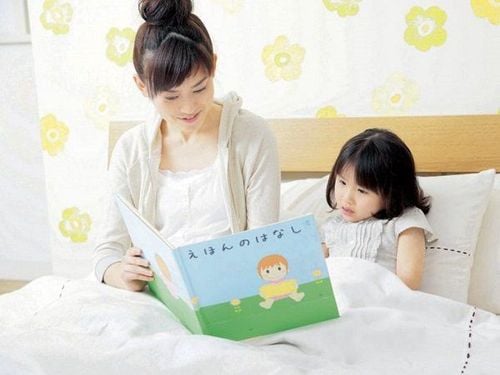This is an automatically translated article.
Is reading to your baby really important? And how do children like to read? The answer may surprise you. Learning the importance and benefits of reading to children is a way to help them communicate, introduce concepts like numbers, letters, and colors, and build listening and memory skills, and provide infants generate information about the world around them. Reading with your child helps them learn all the sounds they need to speak their native language. Hearing words helps build a rich word network in a child's brain. In this article we provide useful information to help guide parents and caregivers on how to read to their babies effectively.1. When should you start reading to your baby?
It's never too early to start reading to your child. Newborns recognize their parents' voices even in the womb, so why not make reading to your baby a habit while you're pregnant? And once a baby is born, reading to babies is a must. Babies won't understand what their parents say, but hearing their voices can stimulate an interest in sound and help develop listening skills. Plus, regardless of age, reading together is a great opportunity to strengthen the bond between parents and children. By developing the habit of reading regularly from the outset, books become a natural part of a child's day, something he or she may find joy in.
Trẻ sơ sinh nhận ra giọng nói của cha mẹ mình thậm chí ngay từ khi còn trong bụng mẹ
2. Why is reading to children good for them?
Reading to your child will help them build and accumulate vocabulary, stimulate their imagination and improve their communication skills. The more parents talk to their children from an early age, the better for the child's growth and development.Giving simple comments about the state of the neighborhood while walking or calling your child's name and body parts while bathing are good ways to talk to your child. Reading is another way to increase verbal interaction between parents and their children. Reading to your baby introduces her to concepts in stories, numbers, letters, colors and shapes, and gives her information about the world around her. It also builds memory skills and improves vocabulary. By the age of one, your child has learned all the sounds needed to speak his or her native language. The more words she hears, the better she can talk.
3. What should be read to children?
During the first few months, babies only catch the rhythm of language rather than content when listening to their parents speak. Repeating a story over and over can be a good method because it helps your baby build language skills. And to keep reading interesting, change the pitch of your voice or use different voices for different characters. But really, when it comes to reading to children, anything from a magazine, or even a novel that a young parent is reading can be a good choice.Children can also be attracted to pictures with bright colors and sharp contrast, so buy some books with lots of boards and picture books. Most importantly, babies are making connections between the things they love most, the proximity and voices of their parents, and books. This will help your child see that reading is fun and important. You also don't have to read the entire book. Just spending a few minutes reading aloud to your baby can make all the difference.

Lặp đi lặp lại một câu chuyện là phương pháp tốt giúp bé hình thành các kỹ năng ngôn ngữ
4. The best books for toddlers or older
Let children participate in the process of choosing the books they want to be read to. Your child will probably turn a few things into a list of favorite books and will show excitement every time parents take them out to read. Books with colorful pictures and attractive sayings will surely make children feel satisfied. Some children like books with lots of pictures, while others like books with built-in activities such as pictures tucked under pages or spines. The kids may also enjoy the rhythm and playful expression of the nursery rhymes. They are easy to remember, so parents can sing to their children while they both go about their daily chores. When your child is familiar with one favorite book, try another. Sometimes, kids might like something completely different. However, do not choose books that contain overly complicated words. Also, babies love to grab and suck on everything they can reach, so board books or those with thick paper can withstand the most wear and tear.5. Are audiobooks a reasonable choice for children?
Newborns need to feel an emotional connection with spoken words or simply the language they hear, so stay away from audio books and use of electronic devices like TVs or phones. clever. Betty Hart, professor emeritus of human development at Kansas Lawrence University, said: “As with all activities parents do with their children, it is important for parents to pay attention to their children's reactions. very important thing. Experts say the best time for kids to start using gadgets is when they're past their 2nd birthday.Eveline Craftsman, editor of the Child Assessment Bulletin, says: “Put it on! Children in front of a machine is a practice that should not be encouraged. In her view, programs and apps aimed at young children don't have the content they need to make up for the infant's lack of attention by adults. Even educational TV shows or interactive apps aren't as enriching as playing games, learning about the activities around them, or spending time telling stories to children.
6. Should children be taught letters and pronunciation?
When parents read to their children, focus on the joy of being close to them, not the experience of learning the alphabet. An early focus on teaching letters, sounds, and syllables can take away the enjoyment from the get-go. When parents have read to their children enough, the time will come when children will be ready to make connections between the sounds of words and the letters on the pages of a book. Meanwhile, forming a habit of reading for children is a much more valuable lesson than learning phonics from an early age.
Hình thành cho bé thói quen thích đọc sách là một bài học quý giá hơn nhiều so với việc học ngữ âm
7. How do children read the most?
Communication and parent-child interactions are key to getting the most out of reading. Help children make connections in stories and relate them to real life. For example, if there's a yellow ball in the book you're reading, point to the red ball your baby likes to play with and ask her one question: "Do you like the yellow ball or the red one best?" Go ahead and tell your child the answer now: "I think you prefer the red ball to the yellow one because you can play with it, not just see it in the book."Enjoying a book with your child is a great way to share adventures and experiences together. It is also the best way to form children's habit of reading and love books even in later times. Reading to a child is a truly bonding experience, and for young children, being cuddled by their parents to read to them is a special time. Reading to your child is important, but don't turn it into a lecture or pressure your child to read before school. Nurturing a love of books from a young age is a great thing, but above all, let children approach them step by step, leading them according to their interests and development speed.
For children to be healthy and develop well, it is necessary to have a nutritious diet in terms of quantity and quality balance. If children are not provided with adequate and balanced nutrients, it will lead to diseases of excess or lack of nutrients, which adversely affect the comprehensive development of children in terms of physical, mental and motor skills.
Children who do not eat properly are at risk of micro-mineral deficiency causing anorexia, growth retardation, malabsorption,... If they notice the above signs, parents should supplement their children with products. The supplement contains lysine, essential micro-minerals and vitamins such as zinc, chromium, selenium, and B vitamins to help fully meet the nutritional needs of children. At the same time, these essential vitamins also support digestion, enhance nutrient absorption, help improve anorexia, and help children eat well.
Parents can learn more:
Signs of zinc deficiency in children
Micronutrient deficiency and failure to gain weight in children
Please regularly visit Vinmec.com website and update useful information to take care of your child. Take care of the baby and the whole family.
Reference sources: babycenter.com, pearson.com, all4kids.org













